Description
Name in North American Boletes: Boletus firmus
Genus: Caloboletus
- Genus 2: Boletus
Species: firmus
- Species 2: piedmontensis
- Species 3: satanas var. americanus
Common Name: “Piedmont Bolete”
Tells: Dense, firm, pale yellow cap flesh blues, sometimes slowly, and tastes mildly bitter. Red-orange pores stain blue. White-tan-gray stem, usually w/red netting, bruises olive-brown.
Other Information: White-gray to tan-pink or olive cap. Likes oak & beech.
Science Notes: DNA testing moved this mushroom from Boletus to a newly erected genus called “Caloboletus”.
Edibility: Bitter, bitter, bitter!
CHEMICAL TESTS:
- NH4OH (Ammonia): Cap surface turns blue/slate before becoming dingy gray or pale grown. Cap flesh turns brownish.
- KOH: Cap surface turns yellow-brown to blackish brown. Cap flesh turns reddish brown to dull amber.
- FeSO4 (Iron Salts): Cap surface turns slate blue. Cap flesh turns dark gray to grayish olive.
Links:
 |
0 |  |
0 |  |
111 |  |
189 |

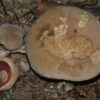
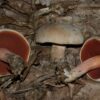
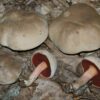
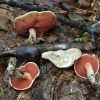

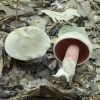

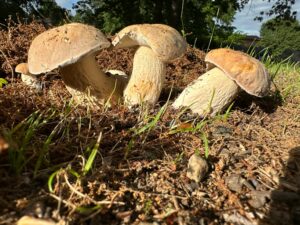
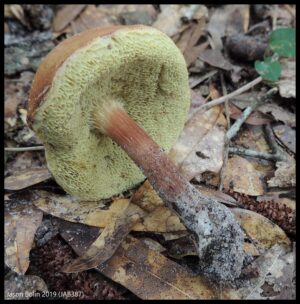
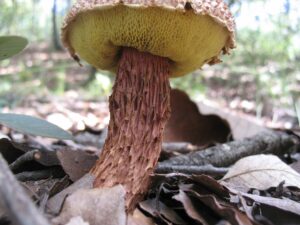
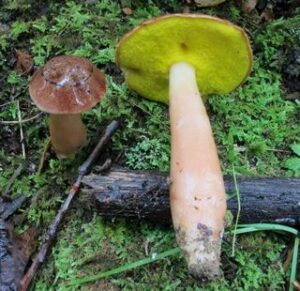
Got something to discuss?